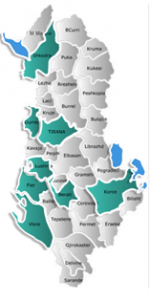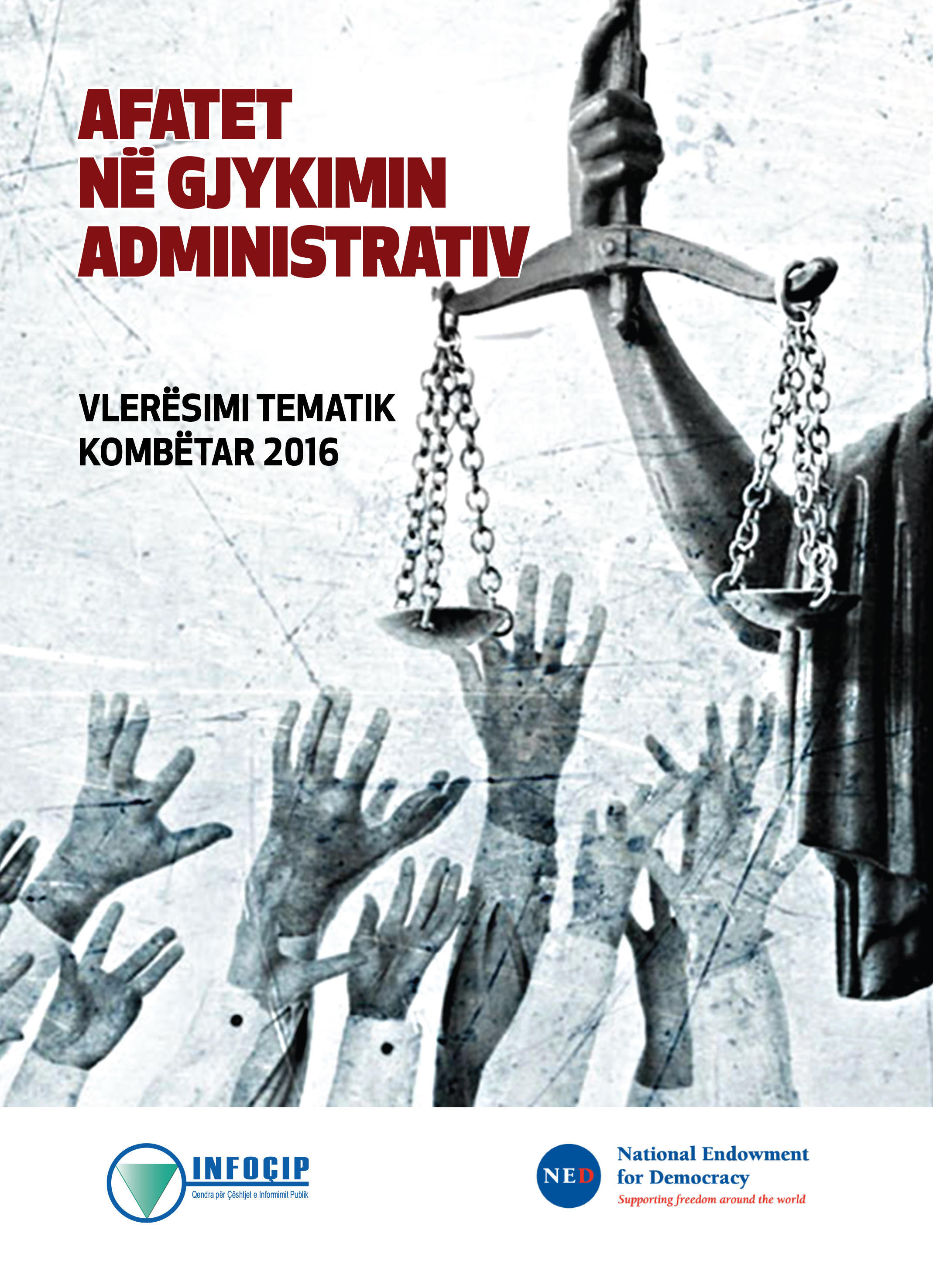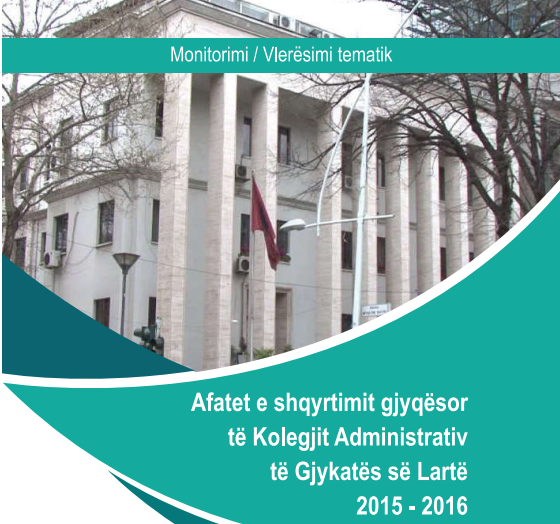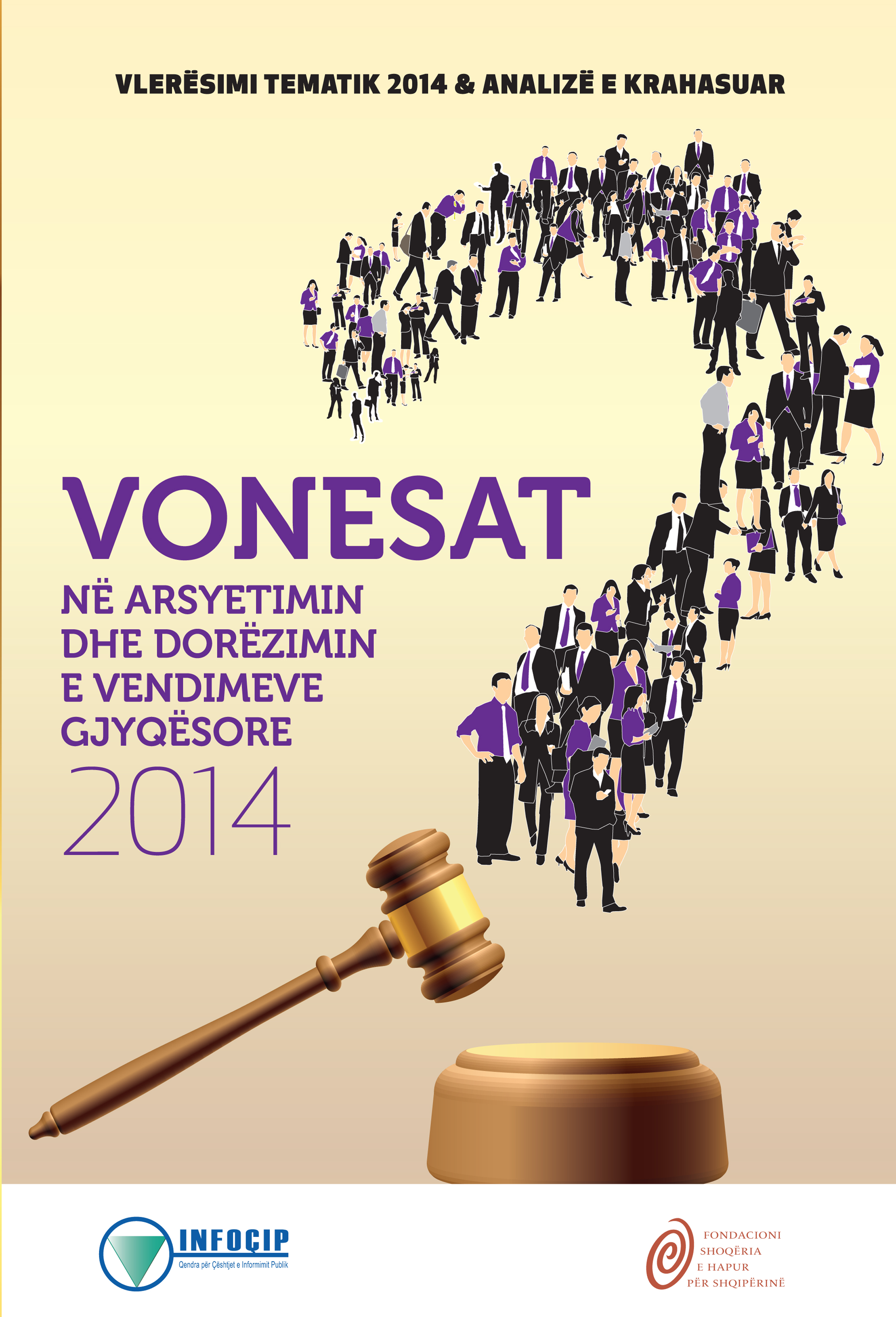President of the Republic, ILIR META at the INFOCIP Conference: Officer Dismissed from Accountability
The President of the Republic, Ilir Meta participated today in the National Thematic Assessment of the Center for Public Information Issues where was discussed “Administrative Judicial Review in the Republic of Albania 2017-2018”, with the special topic “Labor Relations and Judicial Review”.
Addressing the participants, the President of the Republic, after expressing the pleasure of participating in this event, stated that: “I personally wish to dwell more on my speech in ‘Labor Relations and their Protection in Court’. The Republic of Albania has dedicated a special place in the Constitution to labor and socio-economic rights. Respect for freedoms, economic rights and social objectives are the foundations of social welfare. The right to work is a universal right, because without work there is no prosperity, no development, and no family relationship can be claimed to be solid.
The very purpose for which the state exists is to create prosperity, and this can be achieved through work, free economic initiative, fair competition and the guarantee of an environment where every individual has equal opportunities to develop and express their potential. his. If the state exercises its role as regulator and guarantor objectively, then the environment where working relationships are built becomes beneficial to everyone, regardless of the different professional opportunities or abilities of everyone.
Everyone without prejudice, or discrimination, deserves and is entitled to a chance to contribute through work in society and in the family. Our state has ratified conventions that promote rights and dignity at work. The Assembly has adopted laws that make Albania among the countries with full legislation to guarantee labor relations. Our legislation regulating labor relations is complete, but the quality of its implementation in the public sector is still very problematic.
 The political class adopts laws and reports to international bodies that Albania’s laws are of European standards, but on the other hand, they are implemented at will, or of close and transient interest! Albania implemented a legal reform in public administration, approved the new status of civil servant and significantly improved the Labor Code.
The political class adopts laws and reports to international bodies that Albania’s laws are of European standards, but on the other hand, they are implemented at will, or of close and transient interest! Albania implemented a legal reform in public administration, approved the new status of civil servant and significantly improved the Labor Code.
Although legislation has improved significantly and standards have been established to guarantee and protect employment, the practice analyzed by INFOÇIP’s results today leads us to the conclusion that:
The public sector has not implemented these laws properly, not to say that in many cases they have consistently neglected them.
In November 2013, the commencement of the functioning of the Administrative Court was the first forerunner of the Justice Reform. The Administrative Courts became the guarantor of labor rights, even in the spirit of public administration reform itself.
This is a noble mission, the realization of which the Administrative Courts must rely on with the necessary corps of judges and auxiliary staff, so that any claims not only related to employment relations are dealt with as swiftly as possible.
A review of the data provided by INFOÇIP on this forum today shows that cases of unfair dismissal, either for the part of the Civil Service administration or for the rest of the public sector, are a concrete reality. is bitter, and which accounts for a significant share of the overall burden on the judicial system.
The growing number of labor-related litigation, combined with a still-incomplete judicial body, has created delays in the judicial review, not only of these cases, but in general, thus bringing about violations. of the constitutional standard, as well as of the provisions of the European Convention on Human Rights and of the guarantees of a fair, just and fair trial within a reasonable time.
The study that INFOÇIP presents today reflects that, during the years 2017-2018 at the Administrative Court of Appeal, the consideration of labor relations matters constitutes 30% of the total decision-making of this court.
According to data provided here by INFOÇIP, the Administrative Court of Appeal in the years 2017-2018 rendered 10289 decisions on grounds, out of which 3001 decisions on matters pertaining to labor relations. But according to the study, it turns out that 77% of labor lawsuits were settled in favor of the plaintiff, ie in favor of the employee who was unfairly dismissed from work, or was infringed by a right deriving from it. While from the Supreme Court’s decision-making evidence in the last three years, issues related to the calculation of pensions, social security, make up about 60% of the court’s decision-making workload.
Another finding that emerges from this study is the fact that for 2017-2018 alone, Albanian taxpayers will have to pay 15m euros more to redress the damage caused by public administrators through unfair dismissals. Referring to these data, it is evident that state activity has not followed the paths set by the law on respect for labor relations, as long as the judicial conflict between the individual and the state employer is at alarming levels.
The state has unfortunately, from the front line guarantor of the labor relations that should have been, has become their most problematic offender.
This data is important for objectively analyzing the situation and designing concrete policies and constructive measures. It is imperative that all responsible institutions, such as the Assembly, the Council of Ministers, the Department of Public Administration, the State Labor Inspectorate, the Commissioner of Civil Service, the Trade Unions, are objectively committed to resolving this situation. While some institutions need to wake up from the hibernation where they have fallen and take immediate action immediately, without any delay. The State Supreme Audit and all other mechanisms of state control of the efficiency of the use of public finances should report every case of abuse and every responsible person.
It is unacceptable that the burden on the judicial system, or the damage to the state budget, comes from the same public institutions themselves through their malfunctioning, while all the costs of these litigation must be borne by the whole society and all innocent taxpayers.
The time has come for discussion and for the adoption of the law to identify the direct responsibility of the public official when he causes unfair dismissals.
By direct responsibility of the official, I mean its criminal responsibility, responsibility, which should be further clarified as a separate provision in the Criminal Code, but also direct financial responsibility for any damage caused to the state budget.
The time has come to sanction by law that in cases of unfair dismissals, the bill of damages be passed on to the official who made the unjust decision and that the court found
A governing system that does not promote legitimate work and living resources is a system destined to fail. The Assembly and the government should do their utmost to make a contribution to the workforce here in Albania by providing opportunities and security for all young people at work in order to discourage them. left the country. I take this opportunity to thank INFOÇIP for this national thematic assessment, but also its supporters, the Swedish Embassy in Tirana, the ‘Olof Palme International Center and the National Endowment for Democracy’ for making this monitoring possible! And since the main topic is about work, I wish you: Good job! “- said President Meta.
The event was attended by Swedish Ambassador Johan Ndisi, President of the Administrative Court of Appeal Kastriot Selita, Ombudsman Erinda Ballanca, Civil Service Commissioner Spring Strakosha, INFOÇIP Executive Director Gert Shella, ISP Arben Director General Seferi, representatives of the ALSAI, the Center for Labor Rights, as well as international and local civil society organizations.

LAST RELEASED PUBLICATION
MONITORING REPORT
Recent reports/studies
Partners / Donors
Local Branches
- Citizens' Transparency Office, Durrës (19)
- Citizens' Transparency Office, Korça (9)
- Election Situation Chamber (11)
- JUDICIARY (1)
- NED (11)
- www.vendime.al (5)
Foto lajm

- CPII anounces the monitoring result for Durres Municipal Council. It must be re-elected
Where we work














